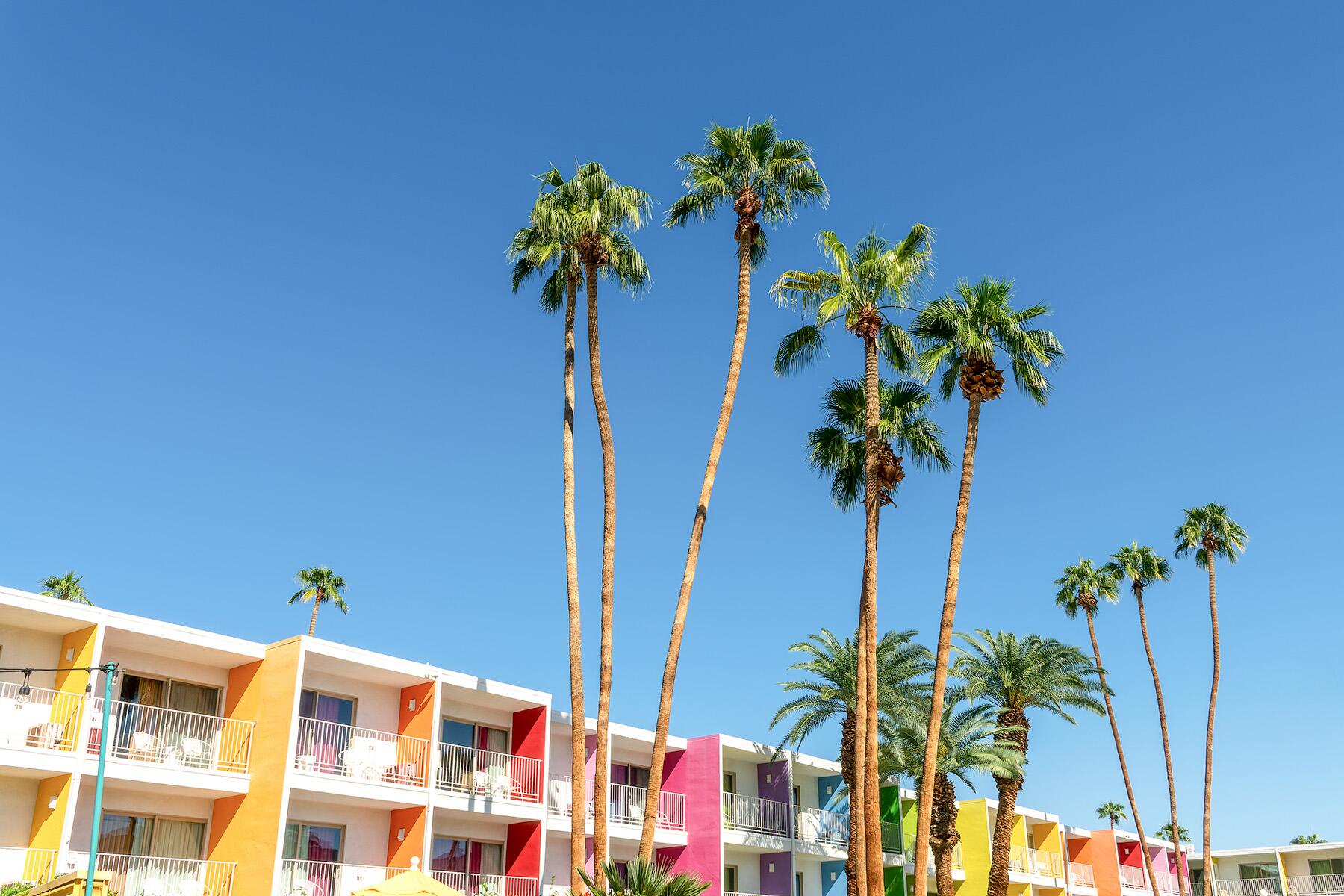Hotels craft unique scents for their properties. But what goes into making that scent is a long, complicated process.
When you walk into a hotel, you may notice the first thing to hit you is a welcoming scent. Whether it’s a tropical getaway and the delicate fragrance of hibiscus and coconut, a forest lodge with the smell of pine trees and smokey wood, or a spa with eucalyptus aromatherapy that relaxes you instantly—scent can take an ordinary moment and make it extraordinary. That’s why many hoteliers are taking care to find a scent that sets the scene from the moment a guest walks in.
“Scents that are developed for common areas of a hotel or resort say a lot about what the hotel is trying to do,” explains Kevin Peterson, a perfumer who owns a Sfumato Fragrances perfume shop and Castalia Cocktail Bar, a scent-based cocktail bar in Detroit. “There are two motifs at play here: a memory motif or a novel motif.”
A memory motif is when a hotel attempts to trigger a memory or create a new one, explains Peterson. Reminders of childhood, home, or the hotel’s environment are designed to create those types of moments. However, a novelty scent is more tied to an unfamiliar experience. For example, a modern hotel located in San Diego, for example, may choose a scent that reflects its surroundings. Another reason a hotel may choose a signature scent? For branding purposes.
Recommended Fodor’s Video

Crafting a Brand Identity Through Scent
“If you’re trying to create a brand identity with several hotels in different locations, you can do that with scent,” adds Peterson. “Different hotels of the same brand may all smell the same, and it becomes a signature scent.”
That is exactly the move for Kimpton Hotels & Restaurants, says Nick Gregory, a Senior Vice President of Kimpton hotel operations. “Kimpton Hotels launched its signature scent about 15 years ago,” explains Gregory. “It’s commonly believed that the more senses tied to a memory, the more lasting it will be. For us, it made sense to utilize the Kimpton scent to establish a sense of place and leave a lasting impression on our guests. Having a memory immediately triggered when they catch the Kimpton scent contributes to our guest’s loyalty.”

Kimpton worked with ScentAir, a scent marketing company designed to engage customers through smell. The company not only has a library of scents—like cedarwood and lavender—but works to help develop each hotel’s scent and how to best distribute it throughout the space. Kimpton chose a blend of citrus, green tea, black pepper, clove, and musk for their signature scent.
While some hotel brands develop a fragrance unique to them, others bring a sense of place to their smell. Case in point: The Four Seasons. The brand’s New York Downtown location combined juicy black currant with the softness of rose petals, developed by the hotel’s General Manager Thomas Carreras. In contrast, the Four Seasons Hotel Ritz Lisbon went a different way, working with perfumer Lourenço Lucena on a scent that paid tribute to the unique relationship between the hotel and the city of Lisbon.

“The hotel wanted to launch a new perfume that portrays its relationship with Lisbon in a unique and mysterious intimacy, full of good stories and memories,” says Guilherme Costa, the General Manager of the property.
Maybe a whole-hotel scent isn’t the best option. But, creating different vignettes of fragrance can help separate experiences while at the same venue. For example, at Pennsylvania-based Nemacolin, the scent in The Woodland Spa was curated for an experience distinct from that of the hotel itself.
“From the moment guests walk through the doors to enter the spa, they experience the signature scent, and their state of mind is transported to a place of calm and inviting relaxation, enabling a guest to leave the outside world behind for an hour or two,” says Katlyn Hatcher, the Director of Spa and Wellness at Nemacolin. “The aroma of the signature scent of the Woodlands Spa is the most commented on by our spa guests.”
The scent was exclusively developed with Air Aroma, a luxury essential oil brand exclusive to the spa. “We sampled several blends curated by Air Aroma until we came upon the perfect mix that encompassed the Woodlands Spa,” adds Hatcher.

The Complexity of Creating a Signature Scent
Creating a signature scent for a property isn’t something that can be done overnight. Damien Craft—the Executive Director of Spa and Wellness at the Amrit in Singer Island, Florida—says that it can take months to figure out a scent because of the several factors that play into the decision, including sourcing ingredients, business philosophies, product cost, and partnership support. For the development of Amrit’s signature smell, Craft says they worked with several resources, presented the vision to the property, and then got to smelling.
“The final step is a small group, including the owners of the property, experience each product and gives it a rating of 1 to 5,” explains Craft. “We then take the highest scores and ensure that they meet the requirements before we move forward with the decision.”
As Peterson says, it also comes down to the science of scent. One thing to consider is competing scents and how they will all interact in one space.
“Will food aromas be coming into this space from an on-site restaurant? Will a spa be nearby? These things need to be taken into account when picking a scent.
“When I develop a scent for a customer, they are wearing it. The scent opens up; it is a progression that requires complexity,” says Peterson. “When building a scent for a space, it will need to be consistent all of the time. So, generally, there is a step back on the complexity of a space scent.” Peterson also advises hoteliers not to go overboard with a scent, saying the fragrance should be subtle, linger in the background, and be tapered off in guest room spaces.
“Subtly is the most important factor,” adds Peterson. “The edge of perception is where the scent is appreciated.”
Bringing a Hotel Scent’s Home
If you love your favorite hotel’s scent, there is a way to capture it in a bottle (literally) and bring it home. Kimpton offers its scents as a candle, room diffuser, and mist, while The Four Seasons and The Woodlands Spa also offer candles to take home. A reminder, hopefully, of the happy memories you had during the stay.
“At the end of the day, having a beautiful scent shows a level of care,” muses Peterson. “The hotel is creating an experience from the very beginning and showing a level of attentiveness to their guests.”





Wow! In my world you totally missed the mark. As a sufferer of scent-triggered migraines and asthma, a scented hotel is my, and 36 million people who get migraines, worst nightmare. I wish hotels would post that they've scented the air as I would not stay there. Some of my favorite hotels are now places I cannot return to as they use strong scents. I also know asthma suffers who have had to leave a hotel due to the perfume. Please consider others and alert those for whom this is a problem or get rid of the scents!